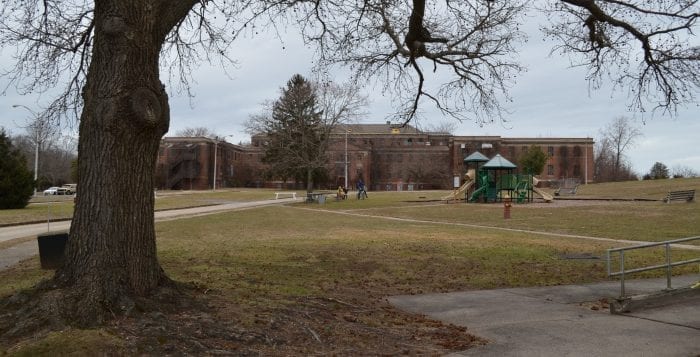Nissequogue River State Park Renovation Plans Derailed

A piece of legislation that would have begun the process of creating a master plan for the Nissequogue River State Park was vetoed by Gov. Andrew Cuomo (D) Jan. 1, putting the future development of the park up in the air.
“The park described in this bill is the subject of recent litigation against the park’s office and the New York State Department of Environmental Conservation,” Cuomo stated. “In light of the fact that the litigation addresses an environmental review conducted by the State related to uses in this very park, it would be inappropriate to sign this legislation.”
The park, located on the grounds of the former Kings Park Psychiatric Center, has been a popular destination for area residents who enjoy hiking, jogging, bird-watching and accessing the local waterways via its marina. But many of the site’s derelict buildings prevent the place from being truly enjoyable. Many people find the old institution creepy.
New York State lawmakers passed a bipartisan bill in June sponsored by Sen. John Flanagan (R-East Northport) and Assemblyman Steve Englebright (D-Setauket) that would have required state parks officials to begin a master plan for the park.
“If there is any park that is in need of a master plan it is Nissequogue River State Park,” he said. “The pieces are already in place and were working toward that.”
– John McQuaid
The introduction of a master plan would have included input from residents, state agencies and other stakeholders. It would also include assessing park resources, outlining future goals/cost of development and allowing the demolition of a number of dilapidated buildings on the grounds.
John McQuaid, president of the Nissequogue River State Park Foundation, said he was disappointed to hear of the governor’s decision.
“If there is any park that is in need of a master plan it is Nissequogue River State Park,” he said. “The pieces are already in place and were working toward that.”
McQuaid admitted that he believes the veto may have been political, stemming from the foundation’s decision to sue the state park’s office and Department of Environmental Conservation over the siting of a DEC Division of Marines Resources building in the park.
Smithtown, state and local officials including County Executive Steve Bellone (D) attended a rally Dec. 20 in support of the proposed project.
According to Smithtown and county officials, the state project is expected to be an economic boost that would bring in approximately 500 construction jobs, 100 permanent positions, plus the added year-round police presence in the state park.
“We have never been against a DEC building on the property,” McQuaid said. “But we were against the location of the building, if we had the master plan process we could avoid this, everyone would have their say and input.”
The proposed site of the building would be in close proximity to the park’s marina. McQuaid deemed the location “inappropriate.”
State officials who helped sponsor the master plan legislation were left confused about Cuomo’s decision.
“The veto made no sense, there is an obvious need for a master plan. It feels like the state has walked away from the property.”
– Steve Englebright
“I am both shocked and disappointed by this action and feel like our community deserves better,” Flanagan said in a statement. “Unfortunately, Gov. Andrew Cuomo decided to veto this legislation instead of joining us in protecting our community, our environment and our way of life.”
Since 2006, Flanagan said his office worked with former Gov. George Pataki (R) to ensure the land is protected by halting the sale of land to developers, adding additional land to the park system. In addition, they secured over $31 million in state funding and worked with local leaders to ensure continued efforts to preserve and remediate the property.
Flanagan said he stands ready to work with all interested parties to see if they can reach an agreeable compromise on this important issue.
“I continue to be optimistic that we can work out a solution, and will return to Albany in January ready to work to find an amicable solution that protects the residents of Kings Park,” he said.
Englebright offered similar sentiments and was hopeful lawmakers would revisit this issue.
“The veto made no sense, there is an obvious need for a master plan,” he said. “It feels like the state has walked away from the property.”
McQuaid echoed the state officials’ thoughts saying the foundation is anxious to sit down with the parks office and state officials so they come to some type of agreement.
Previously, there had been discussions about repurposing park land for a sports field, a concert area and a community center.






